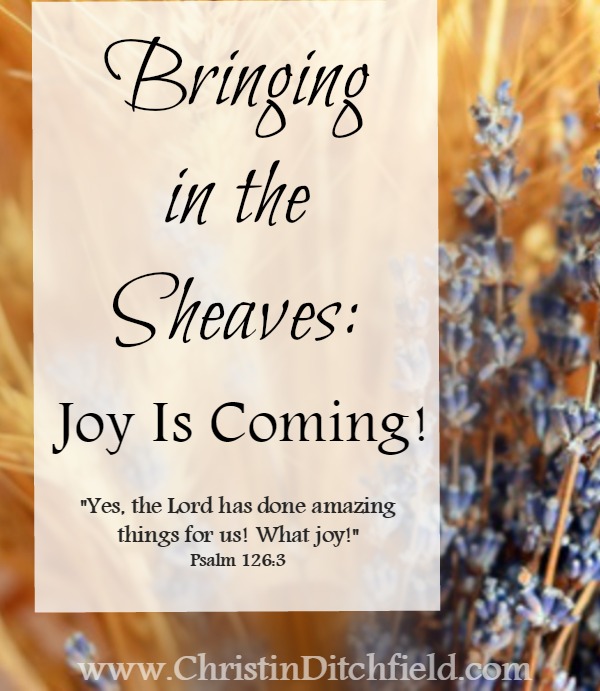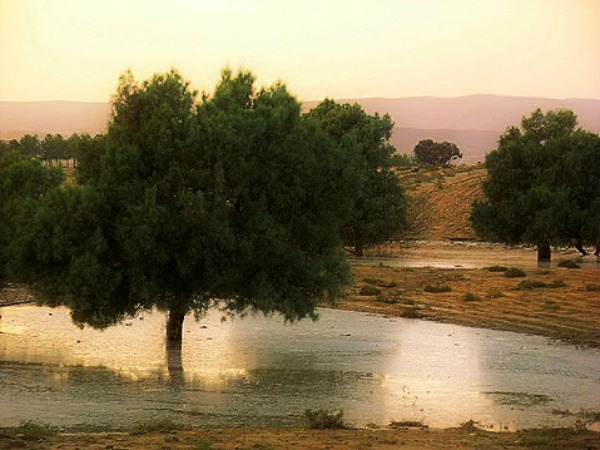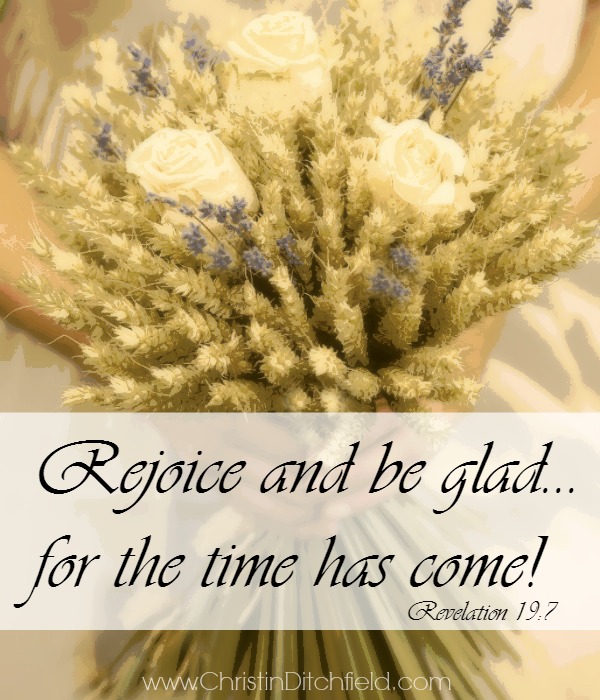Every single week the little congregation sang with such enthusiasm: “Bringing in the sheaves, bringing in the sheaves, we will come rejoicing, bringing in the sheaves!” It seemed to be the only hymn they knew on Little House on the Prairie.
As a child, I remember thinking it was kind of a funny song to sing in church – it didn’t seem to have anything to do with Jesus! As an adult, I wondered if maybe that was the point, that it was vague and innocuous — though the series didn’t usually shy away from spiritual truth.
Then a few months ago, I found myself exploring Psalm 126 during my devotional time. I laughed out loud when I realized it was the source of that funny old hymn from Little House. Who knew? And then I cried as God spoke to my heart, reminding me of some powerful truths.
It’s time for the final post in our Harvest series….

It’s a psalm of celebration, a psalm of thanksgiving and rejoicing. But one that reflects the tension between “the now and the not yet” that we, too, experience.
God’s people had finally been set free after years in exile.
“When the Lord brought back the captives who returned to Zion, we were like those who dream, it seemed so unreal.” (vs 1)
The word “captives” caught my attention first, because I relate to the feeling of being held captive, of being in bondage, being enslaved… to my sin, to my doubts, my fears.
I pulled out Matthew Henry’s Bible commentary. He notes on this passage: “God sent them into captivity, not as dross is put into the fire to be consumed, but as gold to be refined.”
What an important reminder! Their trials — and ours — are not about God punishing us or getting even with us or even abandoning us or neglecting us. It’s about Him – in His love for us – taking the time to teach us, discipline us, refine us, and purify us. (Hebrews 12:11) Been there! Still there…
“Then were our mouths filled with laughter, and our tongues with singing. Then they said among the nations, ‘The Lord has done great things for them.’ The Lord HAS done great things for us! We ARE glad!” (vs 2-3)
I can relate to that joy! I know how it feels to be set free through the blood of Jesus that was shed for me. I’ve experienced that joy over my salvation and at different times in my spiritual journey as He has set me free in specific areas of my life.
I’m still longing for it in others.
And here’s where we get to that tension I mentioned earlier. The people were returning to a land in ruins. They had a lot of rebuilding to do. Their restoration wasn’t complete and neither is ours.
But as Henry notes, “The beginnings of mercy are encouragements to us to pray for the completion of it.”
Which is why the psalm continues:
“Turn to freedom our captivity and restore our fortunes, O Lord, as the streams in the South (the Negev) are restored by the torrents.” (vs 4)
I looked up the Negev. It’s the desert where Hagar encountered God in her most desperate hour, and learned that He is “the God who sees.” He sees our pain and our suffering. He knows what we’re going through. And He comes to our rescue.
In the spring, sometimes the Negev suddenly floods like this… (streams in the desert, anyone?)

http://www.myworldshots.com/authors/RomKri/Israel-Spring-in-Negev-Desert-769.html Used with permission.
While we wait, we work. Sometimes we can’t help but weep while we work. Because it’s hard… it’s a battle sometimes, and sometimes it requires sacrifice.
In other passages of Scripture, it says that those who were old enough to remember couldn’t help but grieve all that had been lost, even as they worked to rebuild. Still…
“They who sow in tears shall reap in joy and singing.” (vs 5)
Matthew Henry writes: “There are tears which are themselves the seed we must sow, tears of sorrow for sin, our own and others, tears of sympathy with the afflicted church, and tears of tenderness in prayer and under the Word… [but] those who sow in the tears of godly sorrow shall reap in the joy of a sealed pardon and a settled peace.”
And so,
“He who goes forth bearing seed and weeping… shall doubtless come again with rejoicing, bringing his sheaves with him!” (vs 6)
The message is this: God promises to deliver us from captivity and lead us Home. He says He will not only redeem us, but restore us. No longer desolate, we will be fruitful and abundant… so rejoice!
I think I could sing that old hymn now with gusto, too!
By the way, I was looking for an image to copy and paste in my journal, something to represent “sheaves”… and guess what came up when I typed in “woman, wheat, sheaf / sheaves”? A bridal bouquet. (Apparently it’s a popular thing in country weddings.)
Not to mix too many metaphors, but I couldn’t help but be struck by the connection to the Bride of Christ…

One day soon, when the trumpet sounds, and the Lord of the Harvest calls, we will come rejoicing, bringing in the sheaves!






